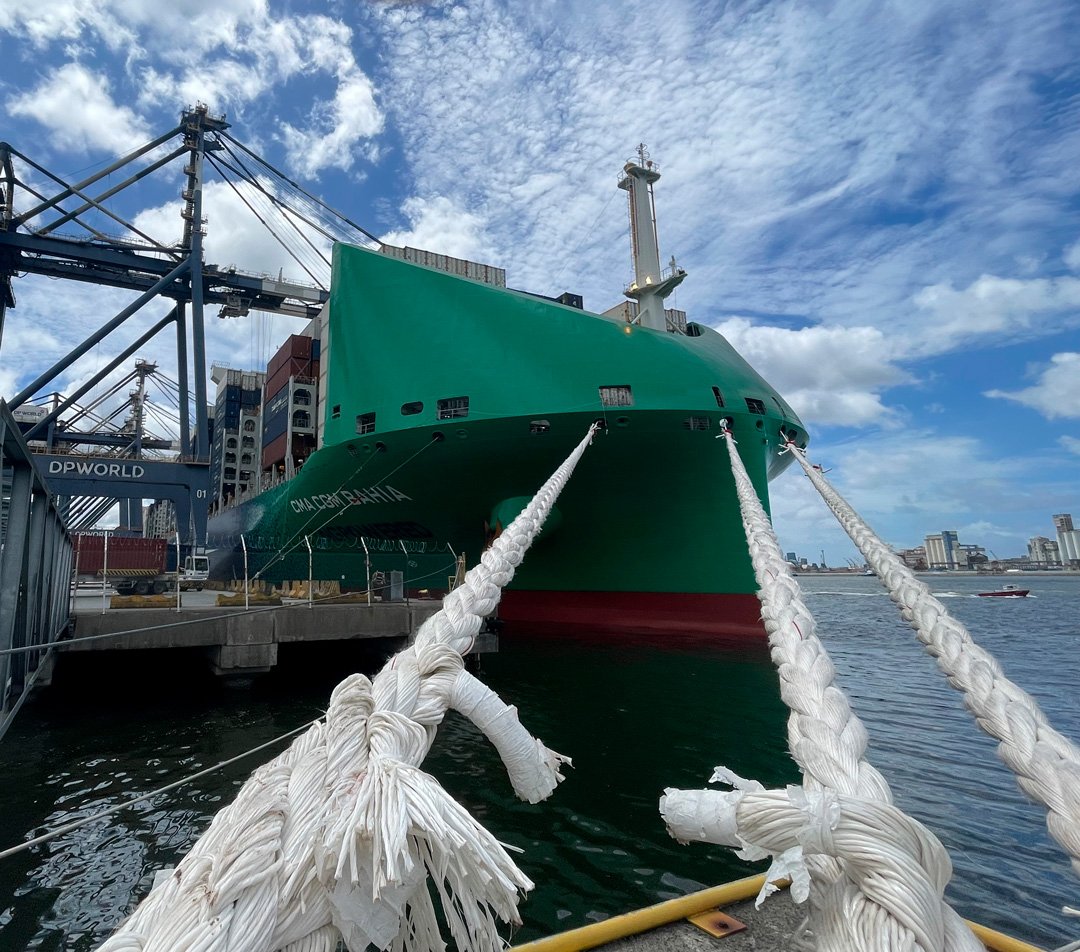DP WORLD WELCOMES FIRST LNG-POWERED CONTAINER VESSEL AT BRAZIL’S PORT OF SANTOS
Vessels powered by LNG emit fewer greenhouse gas emissions and are considered a sustainable alternative for maritime operations.
9 February 2024
In a significant step towards sustainable maritime operations, DP World welcomed the CMA CGM BAHIA, a container vessel powered liquefied natural gas (LNG), into the Port of Santos, Brazil, on January 22, 2024. This marks the first arrival of a container vessel fuelled by LNG at the port, heralding a new era of eco-friendly maritime transport.
The CMA CGM BAHIA, boasting a length of 336 meters and a capacity of over 13,000 TEUs, began its voyage in Singapore on December 28, 2023, berthing at the Port of Rio de Janeiro before making a stop at the Port of Santos. The vessel's journey includes several stops across Brazilian ports, before returning to Santos on its return journey to Singapore.
Vessels powered by LNG are gaining recognition for their lower greenhouse gas emissions, making them a more sustainable option in maritime transport. Emitting 40% less CO² than coal and 30% less than oil, LNG is considered to be a sustainable alternative fuel for maritime operations.
DP World, with its commitment to reducing carbon emissions, views the arrival of the CMA CGM BAHIA as a key milestone. Rodrigo Gomes, Commercial Manager at DP World Brazil, said: “Welcoming an LNG-powered vessel that generates fewer CO² emissions aligns perfectly with our global efforts to reduce carbon footprints.” He noted that 2024 will see a rise in similar eco-friendly vessels at the port, reflecting the maritime industry’s commitment to forging a more sustainable future in global logistics.
Sustainability Beyond Shipping
In addition to pioneering sustainable shipping practices, DP World is also focusing on greening its internal operations. In 2023, the company embarked on increasing its use of renewable energy through the electrification of its RTGs (rubber-tired gantry cranes) at the Port of Santos. This project, aimed at converting 22 cranes by 2024, involves a cable system for drawing power from overhead lines. This transition is expected to slash the terminal's diesel consumption by up to 60%, further cementing DP World's position as a leader in sustainable port operations.
The company is also embarking upon a pilot project to test hydrogen-powered RTGs at Canada’s Port of Vancouver. A clean and efficient fuel, hydrogen is a proven technology and a viable choice for powering heavy-duty machinery. Slated to kick off in Q2 2024, the hydrogen pilot will gauge the feasibility of electrifying DP World’s global fleet of 1,500 RTGs.
